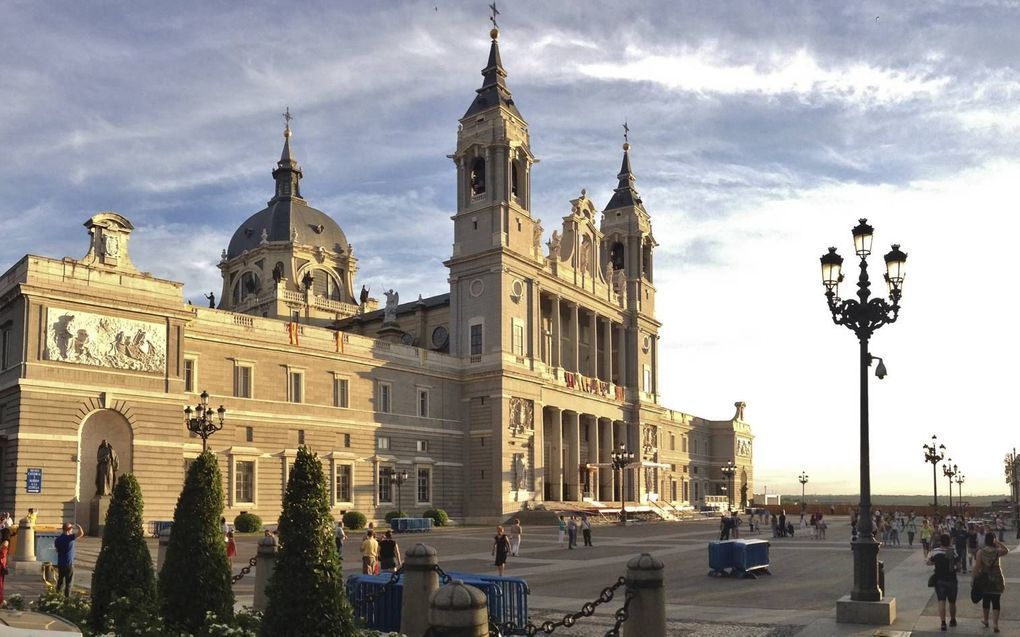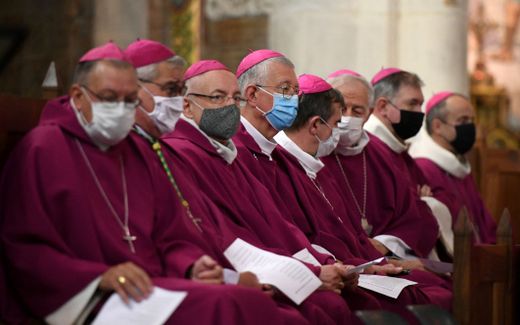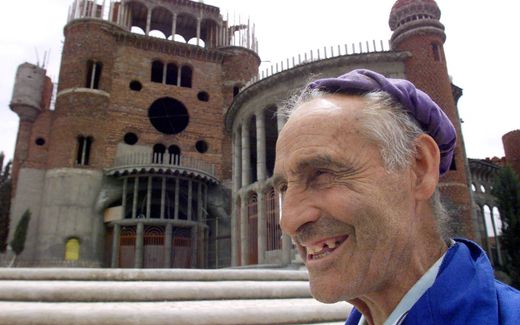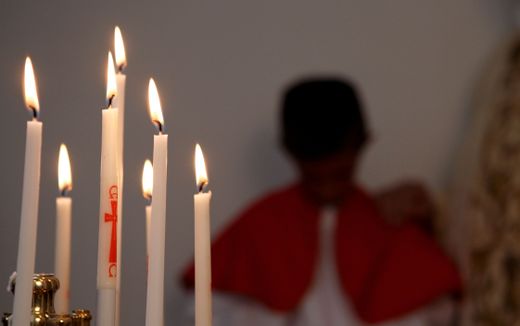Catholic Church in Spain would be open to child abuse investigation
03-01-2022
Southern Europe
Lex Rietman, RD

Almudena Cathedral in Madrid. Photo Wikimedia
Southern Europe
The Spanish Roman Catholic Church does not intend to investigate child sexual abuse by clergy. At least, that is the position that the Spanish bishops have always stubbornly defended. However, according to the newspaper El País, that recently has changed.
The Madrid daily ascribes itself a key role in this. Earlier this month, the newspaper presented a report of its investigation into paedophilia within the Spanish Church to an aide of Pope Francis and Cardinal Juan José Omella, president of the Spanish Episcopal Conference. Based on that report, the Church would now launch a “major investigation” into child sexual abuse by 251 members of the clergy. Colleagues of the Spanish bishops in Germany, France and Ireland, among others, have previously conducted in-depth investigations which have uncovered tens of thousands of cases.
The question is whether that investigation will really find everything that there is. The Spanish dictator Franco and his national-Catholic regime may be gone for almost half a century. However, the Roman Catholic Church in Spain still has a lot of power. The Spanish response to the Sauvé report, in which 216,000 cases of paedophilia within the French Church were recently documented, speaks clearly in that regard.
“We are all sinners,” Cardinal Omella said after the French report was released. Many saw in these words a relativisation of very serious criminal offences. “He who is without sin may throw the first stone,” Omella continued. “I thank God that we learned about these abuses.”
Deeds
This gratitude from the highest Spanish bishop has not yet been translated into deeds. In France, the Bishops’ Conference created an independent commission of 22 experts to investigate paedophile abuse within the Church. In Spain, individual dioceses will be tasked with investigating abuse complaints in their ranks. There will therefore be no overarching and independent investigation.

The Spanish bishops’ conference president said that he shared “the pain and suffering” of the victims. He also expressed his “disgust at these facts.” But at the same time, Omella demanded that the debate about paedophile abuse should not be limited to the Roman Catholic Church. In addition, he gave the impression that he wanted to shift some of the blame for the sexual abuse by clergy onto the media. “When I see how television and the media sometimes encourage free sex, we can do whatever we want,” he said. “The media spread values against respect for the other and human sexuality. That does not help us.”
Proactive
Last month, spokesman Luis Argüello of the Spanish Episcopal Conference reiterated that the Church would be “not proactive” in investigating abuse. “We are not geared to statistical and sociological studies,” he said. “In addition, there have been very few cases.”
In April this year, the Spanish Roman Catholic Church recognised 220 cases of child sexual abuse by Spanish clerics for the first time. On that basis, Argüello argued that the problem had affected only 0.8 per cent of Spanish priests since 1950. However, the major problem is that a trial by a civil court is impossible in most cases because the offences are time-barred. History has shown that victims need a long time to overcome their trauma and fear to face a legal confrontation with their abuser and the Church. Minor offences are barred when the victim is 23 years old. For serious crimes, this is 38 years – twenty years after reaching the age of majority. In this way, most of these crimes remain with impunity under Spanish law.
Invulnerable
Victims are challenging the official statements of the Church. “It is not true that the number of cases of paedophilia in the Spanish Roman Catholic Church affects only 0.8 per cent of the pastors,” said Juan Cuatrecasas of the Infacia Robada (Stolen Childhood) Victims’ Association. “Many victims have not denounced their abuse. In Spain, the figures are comparable to the French, if not higher. France has a tradition of openness, while the Church in Spain feels invulnerable. Victims here are afraid of reprisals.”
Cuatrecasas has experienced this for himself. His 10-year-old son was abused at an Opus Dei school in Bilbao. When he and his wife filed charges, the family was bombarded with threats. In the end, the family had to move to another city.
Open secret
The El País investigative report contains cases between 1943 and 2018. It concerns a total of 602 pastors suspected of abuse – including 251 newly discovered cases – and more than 1200 victims. The investigation is based on reports to an e-mail address that the newspaper opened for victims three years ago. Only the testimonies of victims and eyewitnesses themselves were included in the investigation. According to the newspaper, the actual number of victims is probably much higher, since in most cases there is talk of paedophiles who abused dozens of children. The abuse was often an “open secret.”
Recently, a joint survey of three universities in Catalonia and the Basque Country among victims of paedophilia within the Church was presented. The results were shocking. In two-thirds of the cases, the abuse was ‘chronic’, repeated over three to eight years. On average, the children were 12 years old when the abuse started. The idea that these practices are usually limited to touching turned out wrong. Penetration occurred in 42 per cent of the cases. Two of the three perpetrators were priests.
The consequences for the children turned out to be severe and permanent: anxiety and depression, problems related to family and sexuality, insomnia and nutritional disorders. In addition, most of the victims had also previously suffered physical abuse, were disabled or were in a situation of social exclusion. “The clergy were aware that these were very vulnerable children without protection,” concluded researcher Noemí Pereda. “That provided the perpetrators with impunity.”
This article was translated by CNE.news and was previously published in Dutch daily Reformatorisch Dagblad on December 27th, 2021.
Related Articles





